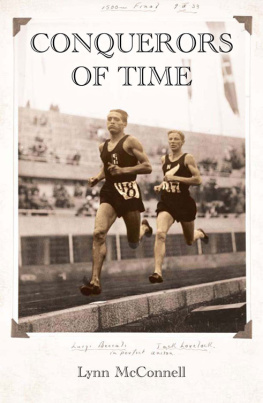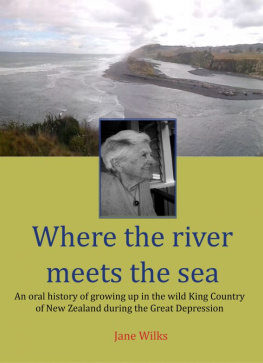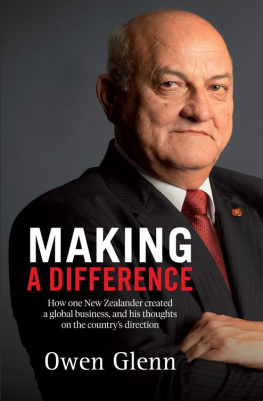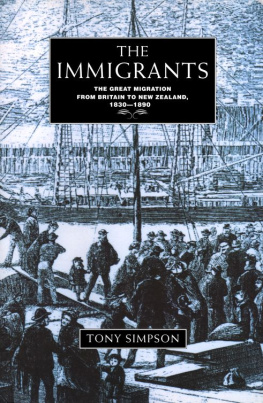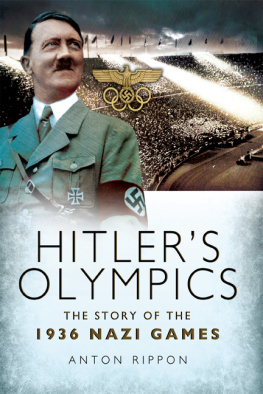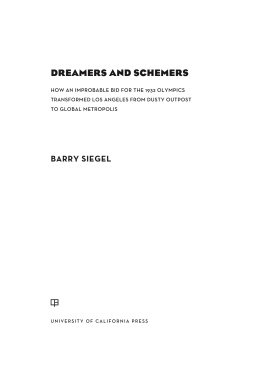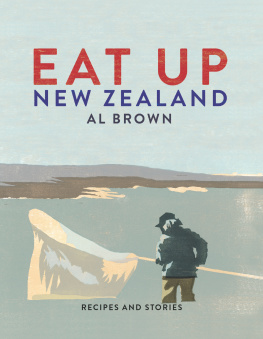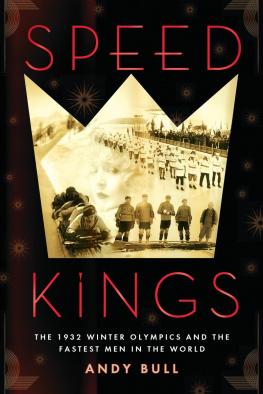

Growing up in New Zealand in the 1950s, I became familiar with the name Jack Lovelock. My parents were friendly with one of his close relatives. Harold Abrahams legendary and passionate commentary come on, Jack; come on, Jack was a regular radio replay. On occasion, a Rhodes Scholar neighbour would invoke Jack Lovelocks memory. Then, some years later, I would have the privilege of working in the same organisation as his fellow 1932 New Zealand Rhodes Scholar, Dr John Watt.
The 1930s represented a golden era for mile and 1500m running. Its pinnacle was the 1500m final at the 1936 Berlin Olympics. Many will remember those as the Jesse Owens Games. But this was an era of great sports journalism too, both in print and on radio. Some journalists had a different perspective. For example, Baz OMeara of The Montreal Star reported: Lovelock took the play away from Owens. His reason for that conclusion was perhaps best captured by E A Montague of The Manchester Guardian, who described the 1500m final as a race magnificent beyond all description. Of Lovelocks performance he could only marvel: His mood was on him. He was running in a rapture and no human being could live with him today. There never was such a run or such a runner.
Lynn McConnell is an accomplished and much respected sports journalist. He is also a published historian. In this intriguing book, he threads together the lives of all the major competitors in the great mile and 1500m contests leading up to that 1936 Olympic final. He has sought out their families and relatives and been granted access to their oral histories and their archives. In this way he is able to describe those memorable races as each of the competitors experienced them. So we come to know Glenn Cunningham, Luigi Beccali, Bill Bonthron, Jerry Cornes, Phil Edwards, Sydney Wooderson, Gene Venzke, and of course Jack Lovelock. Their approaches to each race assume reality through McConnells examination of their individual histories, personalities and aspirations.
The constant theme of the book is the genius of Lovelock. When he was a medical student in Dunedin, he had set his sights on a Rhodes Scholarship to Oxford. That would become the passport to his athletic dream, Olympic success. Early in his time at Oxford, running on the original one-third of a mile track (now rescaled and renamed after another Oxford miler, Sir Roger Bannister), running clockwise as was the custom, he smashed the British and Empire mile record, and shortly afterwards the world record for the three-quarter mile. He broke the world record for the mile again at Princeton in 1933, and with his Olympic victory in 1936.
As McConnell so elegantly illustrates, Lovelocks athletic prowess was an ethereal blend of natural talent, sharp intellect, mental serenity in contest, and brilliant strategy, all wrapped up in a confident independence. He understood his fellow competitors. He had studied them intently. His strategy was built around their strengths and frailties; his execution was nigh flawless. So much so, that Paavo Nurmi rated him the greatest middle distance runner ever.
There have been biographies and other studies of Jack Lovelock. This one is unique because it dissects the drama of the eras contests through detailed examination of all the main characters. It vividly sets the remarkable achievements of an outstanding New Zealander in their rightful athletics context.
John Hood
Oxford
April 2009
The End of the Golden Age
Up to 1932 the world had seen two consummate milers W G George running in peerless splendour in the eighties and Nurmi. Since 1932 there have been four Lovelock of New Zealand, Beccali of Italy, Cunningham and Bonthron of the United States. They have made the last four years a golden age of miling. Races were arranged between them to which half the world listened. They became household words among many thousands of people who took no other interest in athletics. They demonstrated with supreme skill the art of running the most scientific of all races. Incidentally between them they made five new worlds records for the mile and the 1,500 metres, which is the Continental and Olympic equivalent of the mile.
The art of these men, ever inciting each other to greater heights of achievement, reached its most complete and thrilling expression in the Olympic 1,500 metres at Berlin. It seemed then, and it seems now to at least one spectator, that in that race he saw for the first time running that was perfect in all its elements grace, skill, speed, judgment and courage. It was a supreme exposition by the three supreme performers, Lovelock, Cunningham and Beccali, who were first, second and third. It was their greatest triumph and, as one can see now, it was their last.
E A Montague
Manchester Guardian, October 5, 1936
(Montague finished sixth in the 3000m steeplechase at the 1924 Olympics. And he is wrong in saying there were five world records broken. There had been six Becalli 3:49.2 and 3:49.0, Bonthron 3:48.8, Lovelock 3:47.8, Lovelock 4:07.6 and Cunningham 4:06.8.)
Note: In order to achieve uniformity of style from various sources researched for times in events, these have been changed. Times are listed as 3m 47.8s representing 3 minutes 47.8 seconds.
No book of this nature could be written without the help of many willing, and often unwitting, contributors. Foremost among these must be the families of the runners: Mary Lovelock and her husband Bob Chapman, and brother-in-law Don Baer, Ruth Cunningham and her sons Gene and Glenn Jr and grand-daughter Jana whose email address made all the contact possible, Jane Bonthron, Susan Bonthron, Gilliane Lapointe and the late Jim Bonthron, Gene and Kris Beccali, Gene Venzke Jr and John Venzke and the late Jerry Cornes.
Special thanks are due to: Dr John Hood, the vice chancellor of Oxford University and a former Rhodes Scholar from New Zealand; Prof Roger Robinson, of Victoria University of Wellington, and his wife Katherine Switzer, for their interest and guidance on numerous occasions, and support when a bed was needed in New York (Rogers provision of the previously unsourced article in Growing Opinions A symposium of British Youth Outlook was especially appreciated for its undoubted contribution to understanding the Lovelock method and many of his other views which have been erroneously portrayed in the past); David Groves for assisting with translation of Luigi Beccalis material; and to Henriette Naas and Tim McConnell for their assistance in German translation.
The curator of the Lovelock Collection at the Alexander Turnbull Library in Wellington, David Colquhoun was unstinting in support and a willing checker of facts from the Lovelock Archives. Lovelock was certainly of the medical profession with some of his handwriting.
Thanks are due to the staff of that outstanding sporting resource, the Amateur Athletic Foundation Library in Los Angeles. Also thanks to the staff of the Kenneth Spencer Library at the University of Kansas, Lawrence, the Mudd Library at Princeton University, the chief executive of the New Zealand Sports Hall of Fame, Ron Palenski, and Dr Dave Gerrard for his material on Sir Arthur Porritt. Thanks are also due to Blair Parkes from Radio New Zealands Sound Archives, Peter Sellers, Warwick Larkins, John Knowles and DOC Williams.
And to the old boys of Timaru Boys High School, the late Sir Roy McKenzie, Dave Leishman, Tom Hindley, Les Andrews and Merv Taiaroa.
Next page
